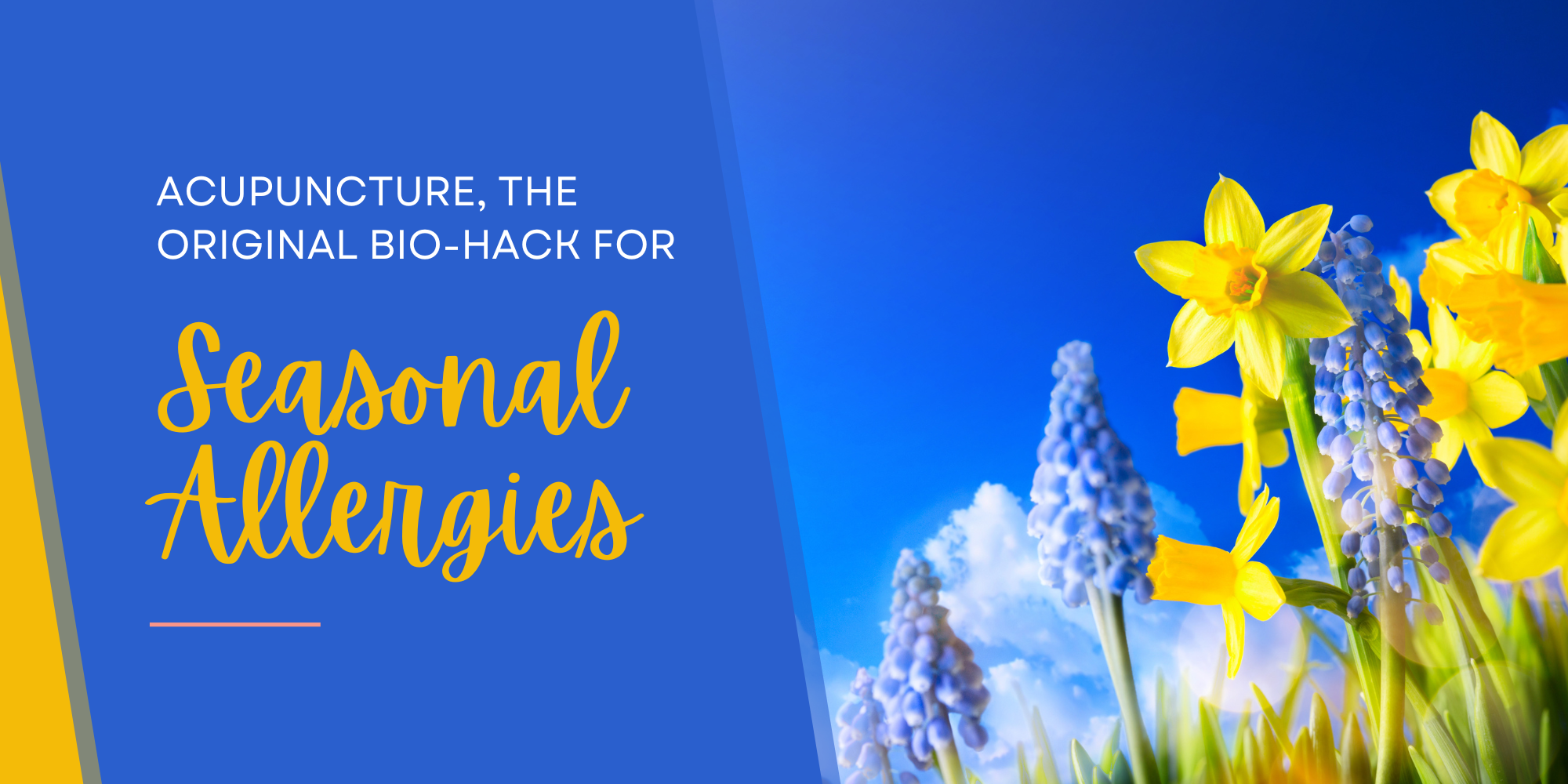
Many of us struggle with unpredictable seasonal-allergy symptoms. How does one create a plan of action to reduce the incidence and severity of an illness with such an unpredictable temperament? Luckily, acupuncture is like the duct tape of medical interventions, patching dysfunction and boosting the body’s natural resilience with the creative tenacity of MacGyver.
Acupuncture can often provide a measure of relief spanning several areas at once (stress relief, pain relief and immune system support at the same time). Because acupuncture’s mechanisms of action impact several biochemical pathways that influence seasonal allergies, it is a tool that works in both a preventive and a pain-relieving way. In this case, it treats nearly every stage of the seasonal allergy process (barring emergency medical conditions).
First stage: Annoyance and confusion. When did I start sniffling so much? Is my head hurting in general or just when I work? Am I getting weaker or is it actually more difficult to breathe? Is it [cedar/grass/mold etc.] season?
Acupuncture solution: Head it off at the pass! This is not a time to “tough it out” by ignoring these early warnings. This is a great time to come in for treatment. Acupuncture stimulates the immune system response, reduces stress, inflammation and alleviates symptoms such as runny nose, sneezing, itchy eyes and nose, nasal congestion and interrupted sleep due to all of the above (1). This creates the conditions for your body to stop the cycle of inflammation, creating a window of opportunity for the body to repair itself and avoid the deeper depths of the next phase.
Treatment plan suggestion: acupuncture twice a week for four to six weeks for optimal results.
Second stage: Desperation. Help! All of a sudden, my head/chest/throat/ sinuses are painful, inflamed, phlegm-sodden fonts of misery. Am I developing pneumonia? Am I now a public health hazard?
Acupuncture solution: Let an acupuncturist soothe your body and mind. This is a tricky time, when the couch or bed becomes magnetic and a box of tissues, tea and sleep are often prioritized over seeing a medical provider. There may also be concern that one has become infectious. Have no fear, acupuncturists are here to treat you at your most miserable and possibly infectious states. In the acute stage of allergy-induced illness, acupuncture can offer startlingly effective pain relief, reduce the proinflammatory neuropeptides and cytokines that are making mischief in the mucosal tissues, and help clear the nasal passages (1). It can help the storm pass more quickly and give you an hour of much-needed rest during the treatment itself. An acupuncturist can also confirm whether a visit to urgent care is needed in cases such as bacterial infection and severe respiratory distress.
Treatment plan suggestion: every two to three days for three visits during the acute phase, including herbal formula prescription and cupping.
Third-Fifth stages: Denial, Amnesia, and Accommodation. The storm may have passed, but the waters are still choppy. Living on steroidal inhalers and antihistamines can’t hurt, can it? Shall I mow the lawn and just assume that I will generally feel more tired and foggy headed for the next three months?
Acupuncture solution: This is the absolute best time to come in for acupuncture. Patch the roof when the sun is out, rather than when you’re reminded of the leaky roof in the middle of the storm. According to Chinese medical theory, one should treat seasonal diseases two seasons ahead. So if you have stronger symptoms in the spring and summer, start getting acupuncture weekly in the fall and winter. This helps diminish the severity and frequency of allergy symptoms during the high season, and your acupuncturist can also recommend things to do at home in the meantime to support your body’s immune system. Try using diet and herbs, lifestyle adjustments, acupressure self-massage and other tools for stress relief such as meditation, which has been shown to activate the anti-inflammatory and immune system response. Could this be the original form of biohacking?
Ultimately, acupuncture should be considered as a first-line treatment for the discomfort of acute seasonal allergies, a medical tool to prevent flare-ups of allergies, and as a source of biohack information using herbs, diet, meditation and self-massage to improve well-being year-round.
McDonald, J. et. al. Evidence-Based Complementary and Alternative Medicine. The Anti-Inflammatory Effects of Acupuncture and Their Relevance to Allergic Rhinitis: A Narrative Review and Proposed Model. Volume 2013 (2013), Article ID 591796, 12 pages


